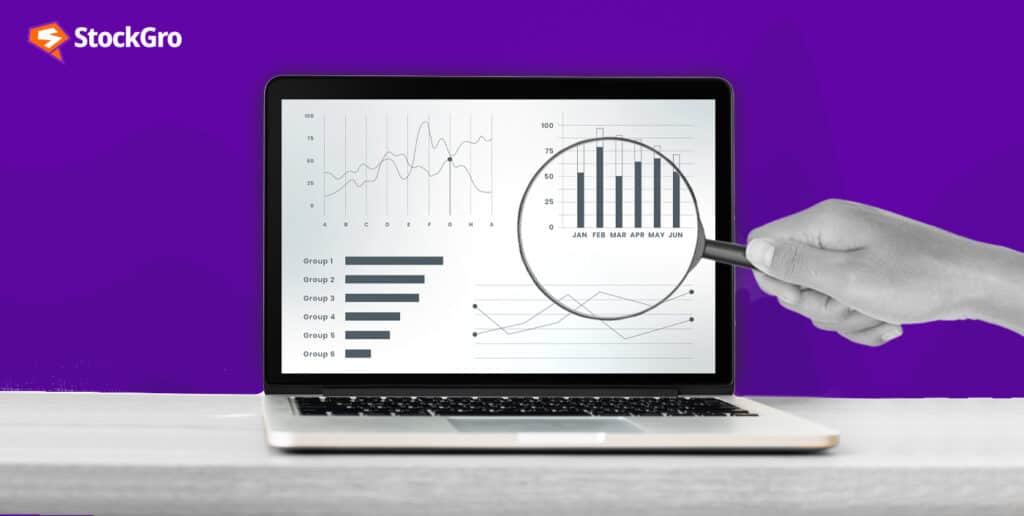
Companies are a very important aspect of any economy – be it a public-focused one or a private-driven one. In this business-driven landscape where more and more startups are starting to impact the market, calculating company valuations has never been more crucial.
Whether you’re an aspiring entrepreneur, an investor, or simply someone interested in the world of finance, understanding the nitty-gritties of company valuations is a skill that can empower you to make informed decisions with far-reaching consequences.
Company valuations not only serve as a critical yardstick for when you’re making investments, but can also shed light on a company’s intrinsic financial health, growth potential, and competitive position in the market. Here’s how they’re important.
In this article, we will delve into the fundamental reasons why company valuations are of paramount importance, and learn about a few ways in which you can go about calculating a company’s worth on your own.
You may also like: The Capital Asset Pricing Model (CAPM) – Explained
Introduction to business valuation
The business valuation, also known as the company valuation, is used to determine an entire company’s worth or the value of any one of its departments or components.
One might want to estimate the value of a company to find out sale value, bring on new equity partners, pay taxes to the government, or even settle legal proceedings.
Due to the complexity and nuanced nature of business valuation, most owners will turn to professionals to accurately estimate the value of a business.
Usually, valuation calculations are done when companies are looking to merge with other entities, are selling off a portion of themselves, or acquiring a different business.
Valuation also includes estimating the worth of the management of the business, its current profit-making capabilities, and its appeal to potential investors.
How to calculate company valuation?
Financial experts haven’t yet agreed on one single best way to value a company, so there are lots of methods to choose from. Let’s get into them one by one.
Book value
This is one of the most straightforward methods to calculate company valuation. To calculate a company’s book value, subtract the company’s liabilities from its assets to determine shareholder’s equity. This is the value of a company on its books. You might also exclude the value of intangibles to quantify the tangible assets.
Also Read: What is book value? How is it calculated?
While calculating book value is the traditional way of valuing a company, it is not always accurate. This is because historical cost accounting and conservative principles do not accurately represent the company’s current financial health and future money-making prospects. Additionally, the company’s management has an incentive to falsely represent numbers on paper, leading to inaccuracies.
Hence, the formula is:
Valuation = Assets – Liabilities.
Discounted Cash Flows
This method comes close to the gold standard in company valuations. It values the company based on the expected cash flows. As per the discounted cash flows method, valuation is a function of the present value of future cash flows based on the discount rate and period of analysis.
In simpler words, this method is like counting all the money a company will make in the future and then shrinking that number down to how much that future money is worth today.
This is kind of like how you might save money for later and think about how much it’s worth now if you wanted to spend it today. DCF helps you figure out how much a company is really worth by thinking about all the money it might make and how valuable that money is today.
The advantage of this method is that it places emphasis on the company’ ability to produce cash and other liquid assets. However, the disadvantage is that calculating future cash flows is hardly an accurate science.
Other variables like future growth, discount rates, and terminal value are all based on assumptions and may vary with time, which will in turn change valuation numbers.
This is what the formula looks like:
Valuation = Terminal Cash Flow/ (1+Cost of Capital) ^ Number of Years
Market capitalisation
This kind of valuation depends on how big the company is – that is, what its share in the industry is. While market cap might be tricky to gauge for privately-owned companies, this information is readily and reliably available publicly for listed companies.
Here’s what the formula looks like:
Valuation = Share Price * Total Number of Shares.
Market cap valuations are used frequently in stock trading to gauge the potential volatility of a stock.
This method usually takes into account the financial health, future earnings potential, and external factors’ effect on the share price. However, a major shortcoming is that it only accounts for the company’s equity valuation, and disregards debt.
Also Read: What is Yield to Maturity? Make profitable bond investments based on YTM calculations.
Enterprise value
The enterprise value is calculated by combining a company’s debt and equity and then subtracting the amount of cash not used to fund business operations.
Simply, this means that you add up the equity value of the company at its present market rate and all the money that the company has borrowed. Now, deduct any cash that this company has that isn’t earmarked for use into business. This cash can theoretically be used to pay off some of the debt. In the end, you get the enterprise value, which tells you how much you’d need to pay to take over the whole company, including its debts and everything.
Hence, the formula is pretty straightforward:
Enterprise Value = Debt + Equity – Cash.
Things to keep in mind
Knowing how to calculate a company’s valuation is crucial for grasping the actual value of an investment. Investing in a security that’s overvalued can put your invested capital at risk. Thus, in addition to fundamental analysis, assessing investment feasibility relies on company valuation and ratio analysis, at the same time.
Company valuations also involve complex assumptions, educated guesses, and industry benchmarks. This is hardly an objective science even though there are so many numbers involved. Not only that, but there’s also an element of personal judgement, which can introduce errors.
To mitigate potential inaccuracies, we recommend using at least two or three different models to evaluate securities and cross-verify the results.

